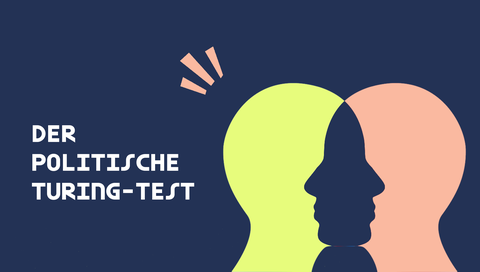Jul 26, 2022
#54 The political Turing test
In political epistemology, cognitive empathy or the understanding of opposing positions is discussed as an important prerequisite for deliberative democracy and understood as a competence that helps to counteract social polarization. Only if we are able to understand opposing positions we're able to deliberatively negotiate our attitudes, values and interests with each other instead of, f.e. devaluing each other as irrational and, as a consequence, sealing ourselves off in our own echo chambers.
One way of measuring and simultaneously promoting cognitive empathy is to carry out the political Turing test developed by the economist Bryan Caplan. Based on the idea of Alan Turing, who developed a similar test in the middle of the 20th century to determine whether a computer had achieved human-like intelligence, it works as follows: A person is asked to put themselves in the position of their ideological or political opponents and be questioned from this role. If a (neutral) observer cannot distinguish between this person and a real representative of the position taken, cognitive empathy can be attributed to the person.
Why not translate this simple principle into a game, a performance or a workshop? We like the idea so much that we are currently in the process of transforming it into an installation for the Build Peace conference that invites participants to test their own cognitive empathy and practise it. Of course, we will then make the developed material available for you to borrow in our shop. So keep your eyes open.

